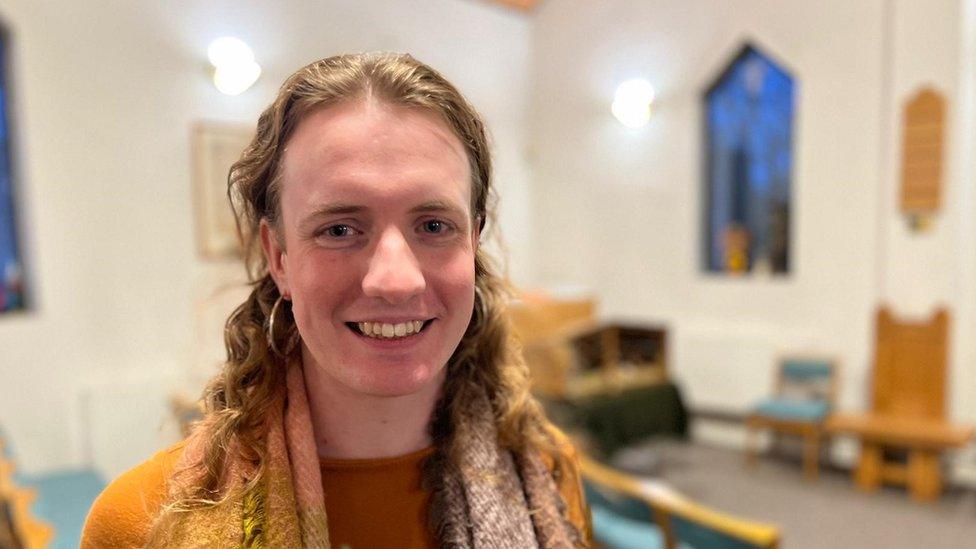Eisteddfod may change Welsh motto due to 'white world' mistranslation fears
- Published
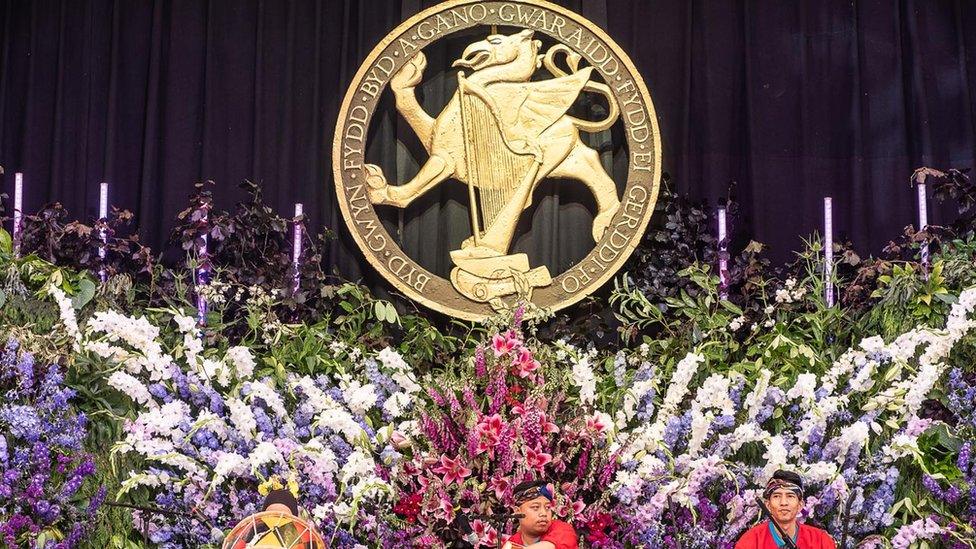
A motto used by the Llangollen International Eisteddfod means "blessed world", but the literal translation of "byd gwyn" into English is "white world"
A motto used by the Llangollen International Eisteddfod for 75 years could be changed over fears it could be misinterpreted as racist.
The first part of the verse by poet T Gwynn Jones means "blessed world" but the literal translation of "byd gwyn" into English is "white world".
The event says the motto should change to "reflect the world we live in now".
But an ex-festival boss said inaccurate online translations were not a good enough reason to change the motto.
Camilla King said while the poem written by T Gwynn Jones was "an incredibly important part of the Eisteddfod's heritage", research showed it could be misinterpreted by people using online translation.
However Dr Rhys Davies, former chairman for the Eisteddfod, said while he agreed with modernisation he feared the use of Google Translate was "affecting our history, our heritage and our language".
"I personally don't see the need to change it, however I understand entirely why this has happened, because when visitors or non-Welsh speakers want to look up the word 'gwyn' if they google it they will only see the translation 'white'," he said.
"What I am concerned about is that googling is affecting our history, our heritage and our language, and I honestly don't see the need to change… [but] I do understand why people want to change."

Camilla says the potential for misinterpretation was "too great to be ignored"
The full motto for the festival for over 75 years has been: "Byd gwyn fydd byd a gano. Gwaraidd fydd ei gerddi fo."
When translated into English by the poet it reads "Blessed is a world that sings. Gentle are its Songs".
Ms King said that during a review into re-branding the Eisteddfod the Welsh words "byd gwyn" had been identified as being potentially problematic when translated literally.
There have also been discussions on the word "fo" which has a literal meaning/translation of "his", but the main concerns lay with the "byd gwyn" literal translation.
During the review Ms King said there was feedback from Welsh and non-Welsh speakers who spotted the potential translation confusion around "byd gwyn".
"The unanimous feedback and strong advice from everyone consulted was that the potential for misinterpretation in the translation was too great to be ignored," she said.
"We understand that there is currently no gender-neutral variant in Welsh, and at this time are more concerned with the connotations of the 'white world' translation," said Ms King.
"[We are] an organisation whose roots and beliefs are so strongly rooted in peace and reconciliation," she told S4C News.
"We welcome tens of thousands of performers and visitors from all over the world to Llangollen each year, many of whom are unfamiliar with the Welsh language.
"There will be those who are very likely to find the translation 'white world' when searching for the meaning of the wording online."
Dr Davies, chairman for the Eisteddfod between 2015-2022, said that the word for white also had similar translations in Cornish and in Breton.
He said that while he was in favour of modernising the Eisteddfod the motto should only be changed if people were offended.
He said one way of changing it would be just to change the word but this would need to work poetically and so the original message was retained.
"It's fine at the moment, however I think to appease people we may well have to make some minor changes and I hope they are only minor," he added.
"We should be trying to protect our language, and we should be saying to people, 'No, it doesn't just mean white, it means blessed'.
"Maybe we should be trying to get in touch with Google and getting them to change their Google Translate, but I doubt we will get very far with that."
He said if people found it offensive something had to be done, but if after the translation was explained they did not feel offended "we can carry on as we have done".
"In reality there is going to be some change, but I'd like it to be minimal," he added.
Related topics
- Published6 August 2022
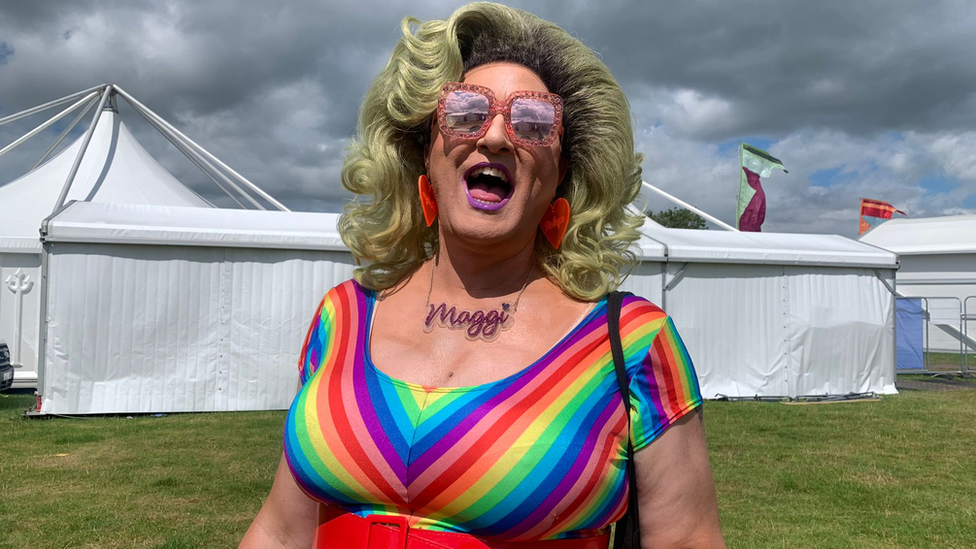
- Published2 March 2023
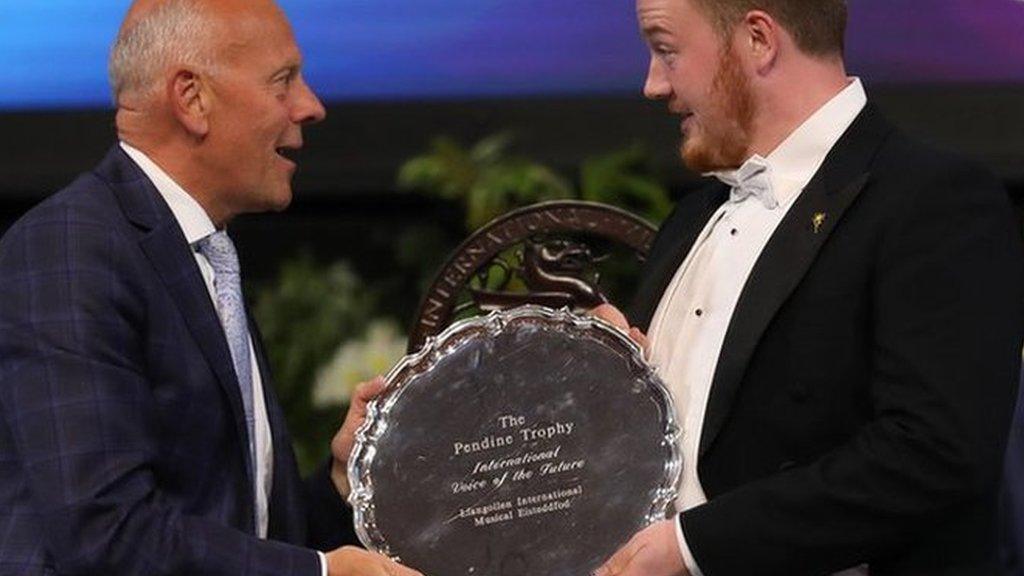
- Published4 March 2023
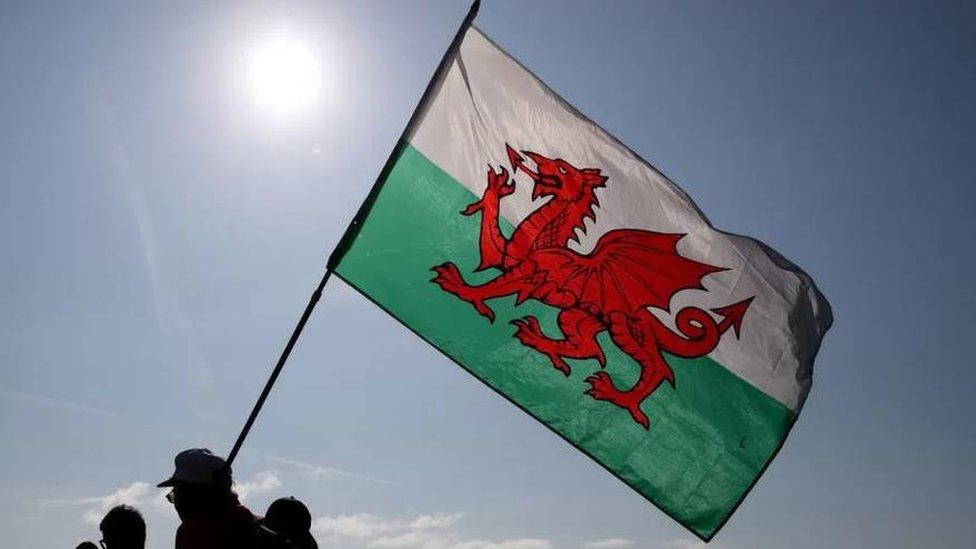
- Published12 January 2023
